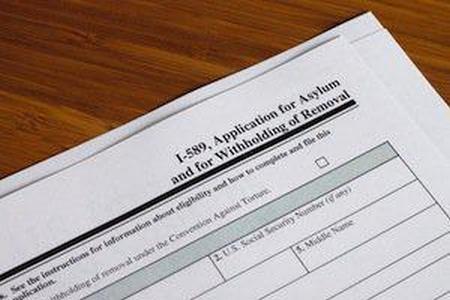Asylum Claims Based On Religious Persecution
 When someone applies for asylum in the United States, there are five different grounds upon which they can make their claim. The most common rationale, after ‘membership in a particular social group,’ is that of religious persecution. However, the actual application is much more complex than is commonly believed. In order to succeed in claiming asylum on this basis, one must have a good grasp of what constitutes ‘religious persecution’ under U.S. immigration law.
When someone applies for asylum in the United States, there are five different grounds upon which they can make their claim. The most common rationale, after ‘membership in a particular social group,’ is that of religious persecution. However, the actual application is much more complex than is commonly believed. In order to succeed in claiming asylum on this basis, one must have a good grasp of what constitutes ‘religious persecution’ under U.S. immigration law.
Religion Defined Under U.S. Law
Religion is not defined specifically in U.S. law, so as to avoid excluding anyone who may subscribe to an unusual interpretation of a ‘mainstream’ religion. However, it also does not mean that any unique set of beliefs will pass muster as a ‘religion.’ Generally, U.S. immigration officials tend to define religion on a case-by-case basis, which can be a difficult presumption to overcome if your belief system is not held to meet those criteria.
It is also worth noting that there is a school of thought that argues that religious liberty provisions ought to apply not only to the religious. It is a fundamental right, at least in the United States, to choose to worship as one sees fit, which includes the decision not to worship at all. It is eminently plausible that in some areas of the world, those who do not believe in any religion would be persecuted as often or more often than those who do.
What Constitutes Persecution?
The key factor in determining persecution is whether or not a governmental entity is involved (or an entity that a government cannot or will not control). The act of persecution has a fairly wide definition in terms of immigration law; it has been held at various times to include physical punishment (beatings, unlawful imprisonment, torture), psychological or economic warfare (restrictions on your speech or employment rights), and other similar acts. These acts can be perpetuated either by the government or by a family member held to have authority over you by the government.
In order to succeed in obtaining asylum based on religious persecution, you must not only be able to show you have been persecuted, but you must also be able to show that it was due to your membership in the relevant religious group. This can be difficult, because politics, religion, and social group membership can often overlap. It is possible to apply for asylum on more than one ground at once—for example, religious persecution and political opinion—and sometimes it is better to do so than to put all one’s proverbial eggs in one basket.
An Immigration Lawyer Can Answer Your Questions
The asylum process is long and complex. Many times, potential asylees will arrive in the United States without the tools necessary to navigate it alone. Engaging an experienced immigration attorney can make a big difference. The dedicated DuPage County immigration attorneys at Mevorah & Giglio Law Offices are happy to advise you on the best approach for your case, and to put our years of experience to work for you. Contact us to set up a free initial consultation.
 English,
English,
 Spanish,
Spanish,
 Polish,
Polish,
 Urdu
Urdu













 Make a Payment
Make a Payment



